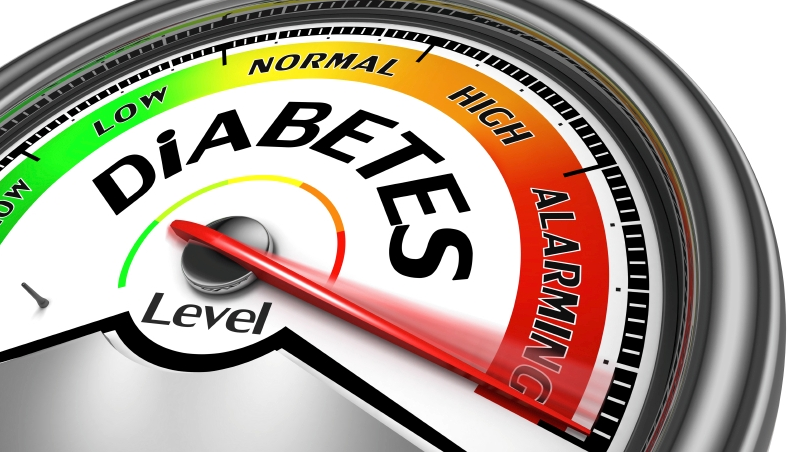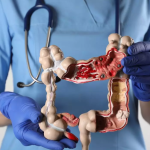Diabetes is emerging as a global epidemic. As per a report from World Health Organization (WHO), the number of people with diabetes rose from 108 million in 1980 to 422 million in 2014. In 2019, diabetes was the ninth leading cause of death with an estimated 1.5 million deaths directly caused by diabetes. Moreover, the prevalence has been found to be rising more rapidly in low and middle-income countries.
As per a report published in Lancet in 2014, India houses over 61 million diabetics and the forecast is that there will be 100 million diabetics by 2030. China is the world capital for diabetes with India a close second. More than 70 per cent of middle aged Indians will suffer with non-insulin dependent diabetes during their lifetime. India contributes nearly one-sixth to the global disease burden of 422 million.
Though diabetes is caused by a complex interaction of genetic and lifestyle factors, the most obvious reason for this increase is the rising levels of obesity due to frenetic lifestyle changes among Indians. According to the same paper published in Lancet, the number of men in India with obesity increased from 0.4 million in 1975 to 9.8 million in 2014; and from 0.8 million to 20 million women during the same period. Moreover, in 2014 there were 3.7 million severely obese women in the country.
Diabetes is one of the diseases that affect the endocrine system. The pancreas produces the hormone insulin. In Type 1 diabetes, the insulin producing cells in the pancreas are destroyed. In Type 2 diabetes, insulin is still produced but the body becomes resistant to it. Almost every organ in the body can be adversely affected with the onset of diabetes. But with regular screening, timely intervention and care, the disease can be kept under check.
The initial symptoms could be excessive thirst, excessive appetite and excessive urination and swelling of feet. Delayed wound healing, frequent infections, nausea, vomiting and weight loss may be other symptoms.
While diabetes cause damage to almost every tissue and organ, the kidney being one of them. If neglected, a person could land into diabetic nephropathy. Serum proteins like albumin in the urine, blood urea and creatinine levels should be checked after every 3 months. Moreover, diabetics should usually limit painkillers. They should watch out for swelling of the feet, extreme fatigue, weakness and breathlessness.
A diabetic should take special care of his feet. Watch out for numbness, foot ulcers and carefully examine spaces between the toes and the soles of the feet. Socks should be washed regularly and one should use footwear, preferably with ankle support. Nails should not be cut too short and sharp edges should be filed. It has been seen that high percentage of amputations are carried out in neuropathic feet with secondary infection, which are potentially preventable.
The eyes of a diabetic also need special attention and care. The retina could get affected, and blood vessels in the eye could leak blood causing diminution of vision with other symptoms including diabetic retinopathy. Diabetes also produces early cataract and in extreme cases, the patient may lose eyesight. So, regular eye check-ups are a must.
There is also a link between depression and diabetes. Research studies have also shown that the chances of developing diabetes was more amongst persons with current depressive and/or anxiety disorders. Some of the newer drugs used in the treatment of mental disorders might increase blood sugar levels. It is now important to monitor all patients on such drugs for their blood sugar levels.
Diabetics have a higher risk of developing cardio vascular diseases (CVDs). Diabetes causes generalised micro and macro vascular disease, affecting multiple organs. Because of increased production of cholesterol and triglycerides levels as a result of insulin resistance in diabetes, there are increased chances of development of atherosclerosis and narrowing of the heart arteries.
More to say, diabetes leads to increased tendency for blood clotting resulting in heart attacks. There is impaired heart cell structure and function, leading to enlarged heart and reduced heart pumping function, a condition known as dilated cardiomyopathy – the condition that may eventually lead to heart failure.
A comprehensive attempt to identify pre-diabetics and intervene to reverse the metabolic abnormality will prevent further increase in the prevalence of diabetes. Preventive health check-up and a year-round management of health and wellness customised to one’s health profile and screening in the community are absolutely essential. Diabetes care and services should be augmented at all levels of healthcare – to ensure basic access of services to every individual of the society.
Coherent efforts must be directed at preventing and delaying the onset of the disease by conducting mass awareness programs and education in the society. Moreover, adopting healthy lifestyle changes including physical activity and dietary approach besides working on the various modifiable risk factors of diabetes could prove beneficial in prevention of diabetes.
Special tips to beat diabetes:
Cutting sugar and refined carbs from one’s diet
Eating foods high in refined carbs and sugar increases blood sugar levels, which may lead to diabetes over time. Avoiding these foods may help reduce the risk.
Working out regularly
Performing physical activity on a regular basis can increase insulin secretion and sensitivity, which may help prevent the progression from pre-diabetes to diabetes.
Drinking water as your primary beverage
Drinking water instead of other beverages may help in regulation of blood sugar and insulin levels, thereby reducing the risk of diabetes.
Losing weight if overweight or obese
Carrying excess weight, particularly in the abdominal area, increases the likelihood of developing diabetes. Losing weight may significantly reduce the risk of diabetes.
Quitting smoking
Smoking is strongly linked to the risk of diabetes, especially in heavy smokers. Quitting has been shown to reduce this risk over time.
Following a very low-carb diet
Following a ketogenic or very-low-carb diet can help keep blood sugar and insulin levels under control, which may protect against diabetes.
Avoiding large portion sizes
Avoiding large portion sizes can help reduce blood sugar levels and decrease the risk of diabetes.
Avoiding sedentary behaviours
Avoiding sedentary behaviours like excessive sitting has been shown to reduce your risk of getting diabetes.
Eating a high-fiber diet
Consuming a good fiber source at each meal can help prevent spikes in blood sugar and insulin levels, which may help reduce the risk of developing diabetes.
Optimizing vitamin d levels
Consuming foods high in vitamin d or taking supplements can help optimize vitamin d blood levels, which can reduce one’s risk of diabetes.
Minimizing intake of processed foods
Minimizing processed foods and focusing on whole foods with protective effects on health may help decrease the risk of diabetes.
Drinking coffee or tea
Drinking coffee or tea may help reduce blood sugar levels, increase insulin sensitivity and reduce the risk of diabetes.
Taking natural herbs
The herbs like curcumin increase insulin sensitivity reduce blood sugar levels and may help prevent diabetes.
(Author is Diabetes Expert, Physician and Columnist, Member of Research Society for the Study of Diabetes in India (RSSDI). Feedback: [email protected])








